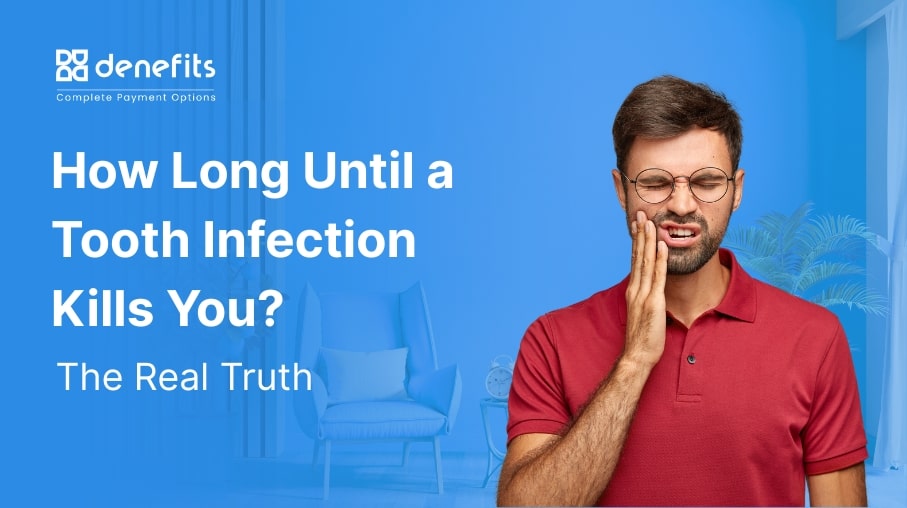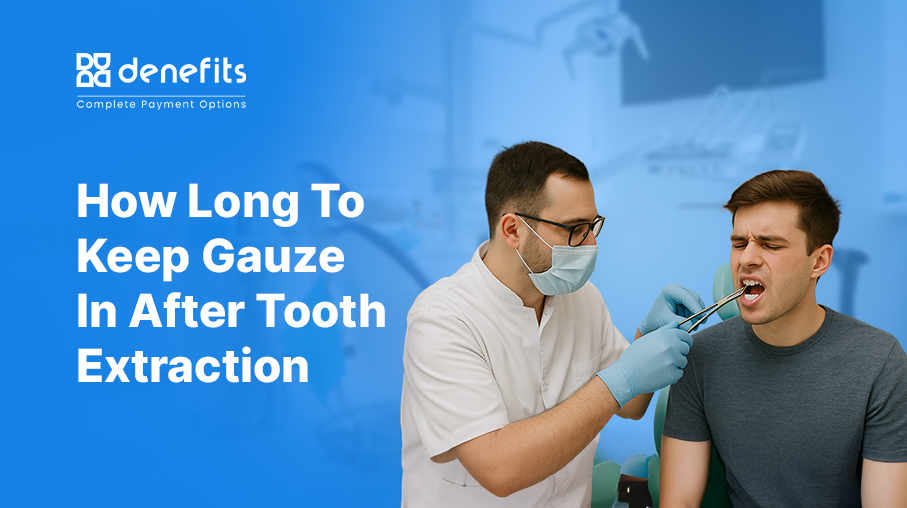
Dental insurance helps big time in getting the dental treatments you need. In fact, 59% of adults in the U.S. rely on private dental insurance.
The most common types of insurance plans are dental HMO insurance and PPO plans. However, the coverage they offer varies. So knowing what these plans cover is crucial for making an informed decision.
Confused Between Healthcare Payment Plans and Health Insurance?
Get More Clarity with Our Guide
Let's look at the differences between these insurance plans and alternatives that can make it easier to afford dental care.
Dental HMO Insurance - What Is It?
Dental Health Maintenance Organization, a.k.a. dental HMO insurance, makes dental care accessible, especially when it comes to preventive treatments.
If you choose a DHMO plan, you must pick a Primary Care Dentist (PCD) from its network. It means whenever you have any problem, you can visit the designated primary dental facility or dentist.
However, if you need any major treatments from a specialist, you’ll need a referral from your PCD.
Pros of DHMO insurance:
- The monthly premiums are usually lower.
- As it involves copayment, you'll know what the insurance company will pay for covered services.
- The DHMO plans cover essential dental care and check-ups. So you can get preventive care without spending much.
- Out-of-pocket costs are often lower for dental HMO vs. PPO
Limitations:
- You can only visit the designated dentists in the DHMO network. So, referrals are needed to get specialty care from out-of-network providers.
- They might not cover major dental procedures.
- Your treatment options would be limited, as dental HMOs cover specific treatments, excluding major procedures.
Dental PPO Insurance - What Is It?
Dental Preferred Provider Organization, a.k.a. dental PPO insurance, gives you more flexibility. It allows you to choose dentists as per your preference. Even one from outside the network
Moreover, PPO provides better coverage as it also includes major dental treatments.
Pros:
- You have more freedom when deciding where or from which provider to seek treatment.
- It provides comprehensive coverage, so you have more treatment options.
- There is no need for a referral from a PCD to see a specialist.
- You don't have to choose one dentist as your primary care dentist.
Limitations:
- The monthly premiums are higher for dental PPO vs. HMO plans.
- It usually involves deductibles and coinsurance.
- If you choose a dentist outside of the network, it may cost more.
What Dental Services Are Covered by DPPO Vs. DHMO?
Both DHMO vs. PPO plans may cover the same services, except the PPO plans are subject to deductibles while the DHMO plans have a fixed copayment limit and do not involve deductibles. Below is a comparison between the two.
Dental PPO Insurance Vs. HMO Plans: Comparing Deductibles And Copayments
| Services covered | Dental PPO | Dental HMO |
|---|---|---|
| Diagnostic and preventive services, including: - Regular oral examinations - X-rays - Dental cleanings | 100% | No cost |
| Basic restorative services, including: - Fillings - Root canal - Simple tooth extraction | 80% (subject to annual deductible) | The copay range varies, i.e., $0–$350+ |
| Major restorative services, including: - Dental crown - Wisdom tooth extraction - Dentures - Dental implants | 60% (subject to annual deductible) | Limited to copayment range, i.e. $500–$2,000 (varies) |
HMO Vs. PPO - Which Is the Best Option for You?
Choosing the best option depends on your individual needs and treatment priorities. Here’s a comparison between DHMO vs. DPPO:
| Factors | Dental HMO Insurance | Dental PPO Insurance |
|---|---|---|
| Premiums | Monthly premiums are low. | Premiums are higher than in HMO plans. |
| Coverage Cap | Copayments for covered services are fixed. | Deductibles and coinsurance are included in coverage and usually vary based on the plan. |
| Application Procedure | The waiting period can range from a few days to a year. | Six-month wait time for major services |
| Covered Services | It covers essential medical services and preventive care. | It provides coverage for preventive care and some major procedures. |
| Designated Provider | A primary care physician is designated to cater to your needs. | PPO insurance allows patients to choose the provider, including an out-of-network provider, at an additional cost. |
| Coverage for treatment from out-of-network provider | No Coverage | Partial Coverage |
HMO plans usually cost less if you have a designated dentist or facility that you can visit. These plans are ideal if you need them for essential and preventive care coverage.
On the other hand, dental PPO insurance lets you choose your preferred provider, but it can be pricier. So, they both have their good and not-so-good sides. However, there are other ways to deal with the limitations of dental HMO insurance and PPO plans.
For example, you can go to dentists offering payment plans, lowering the burden of out-of-pocket expenses.
How Do Payment Plans Work as an Alternative?
Payment plan options from Denefits can be a great way to handle dental costs. It's not insurance, but it helps you pay for your dental bills in affordable monthly payments. This way, you can get the treatment you need without worrying too much about paying all at once.
Here's how Denefits can help:
- You can choose a payment plan through a dental practice that fits your budget and start paying monthly installments.
- There are no credit checks and a high approval rate of 95%.
- The approval process is quick and easy.
But Keep in Mind:
- It's not an insurance replacement, so you'll still be responsible for your bills. But you can spread the payments over time to pay off the dental bill more conveniently.
Final Thoughts
HMO dental insurance and PPO plans both help a lot of people. However, they may not cover everything, and not everyone may qualify for these plans. So, if you need more flexible payment options, Denefits is a solution worth exploring.
Using insurance and Denefits payment plans together can help manage your treatment expenses more easily. So, it's best to discuss with your dentist if they offer Denefits payment plans.
You can request a callback for more information on Denefits.
Dental HMO vs. PPO Plans: Frequently Asked Questions
1. Which Dental Plan Provides More Flexibility In Choosing Providers Between DPPO vs. DHMO?
Dental PPO insurance provides the flexibility to choose a provider of your choice. Hence, you can choose a provider from the PPO network or an outside provider. However, in that case, you may get partial coverage and need to incur some additional out-of-pocket costs. Whereas, there is a primary physician designated for patients with a DHMO plan.
2. Dental HMO vs. PPO: Which Plan Has Lower Premiums?
HMO dental insurance is usually the more cost-effective choice, with lower premiums than PPO plans. However, you have to pay a fixed copayment for services. Also, there is no coverage available if you choose an out-of-network provider.
3. How to Pay For Dental Care If I Don’t Have Dental PPO or HMO Insurance?
When you don’t qualify for either Dental PPO vs. HMO, your best choice is to choose a dental specialist who offers flexible payment plans. Nowadays, many providers use Denefits to offer on-demand payment plan options that can help you afford services without insurance.
4. Can I Use a Denefits Payment Plan With My HMO or PPO Dental Insurance?
Yes, you can also use a Denefits payment plan alongside your dental insurance to cover the out-of-pocket costs. It can help lower the financial burden of additional costs when your HMO or PPO insurance plan provides only partial coverage.


